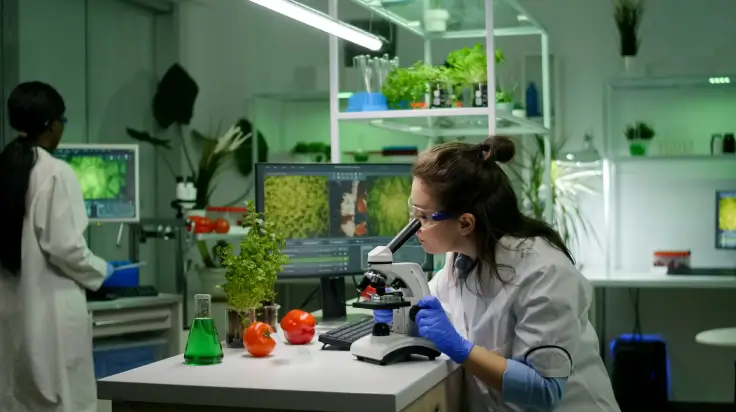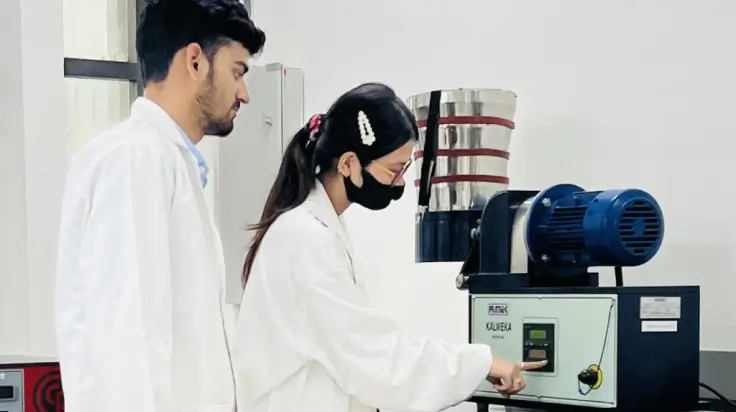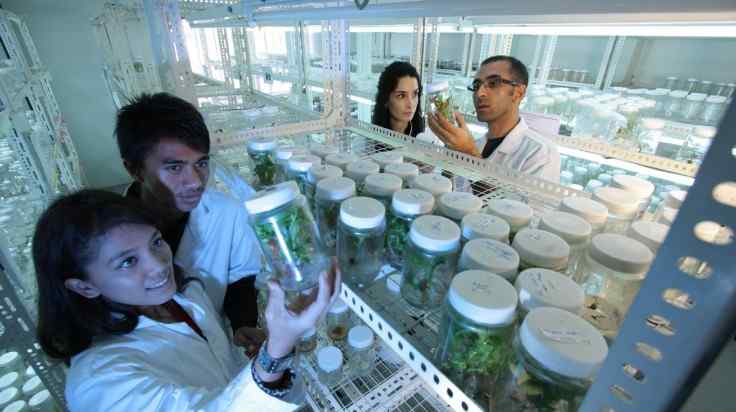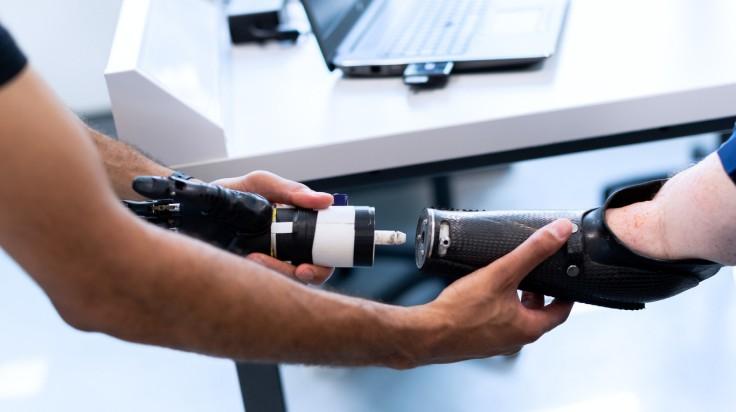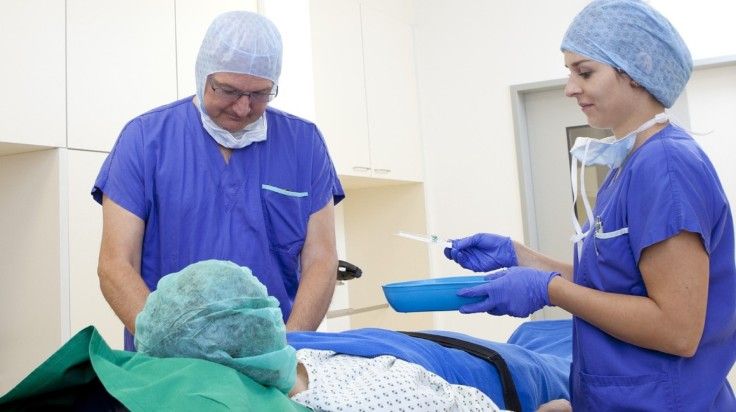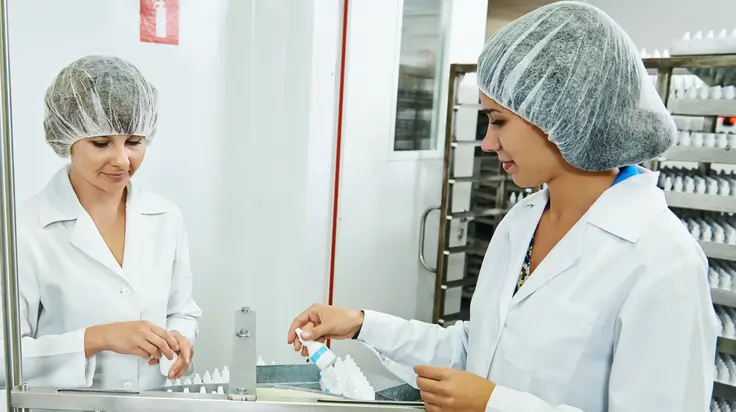Pharmacy Career Opportunities: What Jobs Can You Get After Graduation?
- UPES Editorial Team
- Published 24/09/2024

4 Lakhs Pharmacists Graduate EVERY YEAR! A Bachelor of Pharmacy (B.Pharma) degree opens up a world of opportunities in the pharmaceutical and healthcare industries. With the increasing importance of healthcare and the continuous advancement in medical sciences, the demand for skilled pharmacy professionals is on the rise.
Whether you're interested in clinical practice, research, or the business side of pharmaceuticals, a B.Pharma degree equips you with the knowledge and skills to pursue a wide range of career paths. In this blog, we'll explore the diverse career opportunities available to B.Pharma graduates.
1. Traditional Pharmacy Career Paths
Pharmacist
One of the most common and traditional career paths for B.Pharma graduates is becoming a pharmacist. Pharmacists play a crucial role in healthcare settings, such as hospitals, clinics, and retail pharmacies. They are responsible for dispensing medications, providing drug-related information to patients and healthcare professionals, and ensuring the safe and effective use of pharmaceutical products.
Pharmaceutical Sales and Marketing
Another lucrative career option for Bachelor of Pharmacy graduates is in pharmaceutical sales and marketing. In this role, you will be responsible for promoting and selling pharmaceutical products to healthcare professionals, such as doctors and pharmacists.
Pharmaceutical sales representatives, also known as medical representatives, have strong understanding of pharmacology and work closely with healthcare providers to ensure that they are informed about the latest drugs and treatments available. The job requires excellent interpersonal skills, product knowledge, and the ability to build and maintain relationships with clients.
Production and Manufacturing
The pharmaceutical industry relies heavily on production and manufacturing professionals to produce safe and effective drugs.
Roles in this field include Production Manager, Quality Control (QC) Officer, and Quality Assurance (QA) Officer. These positions involve overseeing the production process, conducting quality checks, and ensuring that products comply with regulatory requirements. Working in production and manufacturing is a critical part of the pharmaceutical supply chain, ensuring that high-quality medications are available to patients.
2. Research and Development (R&D)
Research Scientist
For those interested in scientific exploration, a career in research and development (R&D) is an exciting option. As a research scientist, you will be involved in drug discovery and development, working on the creation of new medications and therapies. This role involves conducting experiments, analyzing data, and collaborating with other scientists to develop innovative solutions for unmet medical needs.
Clinical Research
Clinical research is a critical component of drug development, as it involves testing new drugs in clinical trials to determine their safety and efficacy. B.Pharma graduates can pursue careers as Clinical Research Associates (CRA) or Clinical Data Managers, where they oversee the conduct of clinical trials, ensure adherence to regulatory guidelines, and manage the data generated from these studies.
A career in clinical research offers the opportunity to contribute to the development of new therapies that can have a significant impact on patient care.
3. Regulatory Affairs
Regulatory Affairs Specialist
Regulatory affairs specialists play a crucial role in the pharmaceutical industry by ensuring that products meet all regulatory standards before they reach the market. These professionals are responsible for preparing and submitting documentation to regulatory agencies and ensuring compliance with all relevant laws and guidelines.
Drug Inspector
Another regulatory role available to B.Pharma graduates is that of a drug inspector. Drug inspectors are responsible for monitoring the quality and safety of pharmaceutical products throughout the production and distribution process. They conduct inspections, enforce regulations, and take action against any violations to protect public health.
"In India, B. Pharma graduates have a wide range of career prospects & lucrative salaries. The Indian pharmaceutical market is expected to grow significantly, reaching between $120-130 billion by 2030. This growth will open up numerous opportunities, with about 58,000 new jobs projected by 2025."
- Source (ibef)
4. Quality Control and Quality Assurance
Quality Control (QC) Analyst
Quality control analysts are essential in the pharmaceutical industry, as they test and analyze pharmaceutical products to ensure they meet established quality standards. This role involves working in laboratories, using analytical techniques to test raw materials, in-process samples, and finished products.
Quality Assurance (QA) Manager
Quality assurance managers are responsible for maintaining product standards throughout the production process. They implement QA processes, conduct audits, and ensure that all manufacturing activities comply with regulatory requirements. QA managers play a vital role in preventing defects and ensuring that the final product meets all necessary standards.
5. Academia and Teaching
For those with a passion for teaching, a career in academia is an excellent choice. B.Pharma graduates can pursue roles as lecturers or professors at universities and colleges, teaching pharmacy students and conducting research. To advance in academia, pursuing higher education such as an M.Pharm or Ph.D. is often necessary.
6. Entrepreneurship
Starting a Pharmacy
B.Pharma graduates with an entrepreneurial spirit may choose to start their pharmacy. This involves setting up a retail pharmacy, managing the business, and providing healthcare services to the community. Starting a pharmacy requires a good understanding of the legal requirements, business management skills, and a commitment to patient care.
Entrepreneurship in pharmacy offers the freedom to run your own business while making a significant contribution to public health.
7. Government and Public Sector Jobs
Government Pharmacist
Government pharmacists work in public health departments, government hospitals, and dispensaries, providing essential healthcare services to the community. These roles often require passing government recruitment exams post government job vacancy and offer job security, competitive salaries, and the opportunity to contribute to public health initiatives.
8. Higher Education and Specialization
M.Pharma. (Master of Pharmacy)
Pursuing an M.Pharma allows B.Pharma graduates to specialize in areas such as Pharmaceutics, Pharmacology, or Clinical Pharmacy. An M.Pharma degree opens up advanced career opportunities in research, teaching, and specialized roles within the pharmaceutical industry.
MBA in Pharmaceutical Management
For those interested in the business side of pharmacy, an MBA in Pharmaceutical Management is a logical next step. This degree combines pharmacy with business, preparing graduates for management and leadership roles in the pharmaceutical industry. An MBA provides the skills needed to manage teams, understand financial markets, and lead organizations.
Pharm.D. (Doctor of Pharmacy)
The Pharm.D. is an advanced professional degree that focuses on clinical pharmacy practice. Pharm.D graduates work in clinical settings, providing direct patient care, managing medications, and conducting clinical research. This degree is ideal for those who want to work closely with patients and healthcare teams in a clinical environment.
Conclusion
A B.Pharma degree offers a wide range of career opportunities, from traditional roles in pharmacy practice to cutting-edge research and entrepreneurial ventures. With passion, dedication, and a commitment to continuous learning, you can build a fulfilling and rewarding career in the pharmaceutical field.
UPES Editorial Team
Written by the UPES Editorial Team
UPES Admission Enquiry
Subscribe to UPES Blogs
Join our community for exclusive stories, insights, and updates
By clicking the "Subscribe" button, I agree and accept the privacy policy of UPES.













